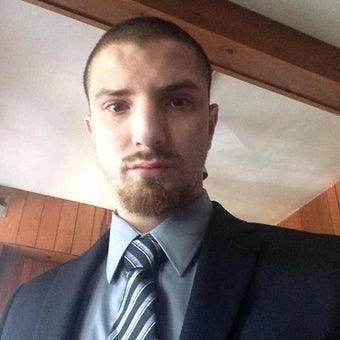Haitian president assassinated by an unidentified group
President Jovenel Moïse was assassinated in his home. First Lady Martine Moïse was also shot and has been hospitalized
The "royal family" and two straw gun purchasers of the largest Haitian gang all pleaded guilty or were sentenced in the U.S. over the last six weeks as part of a federal case that may have set the stage for rival gang leader Jimmy "Barbeque" Chérizier's rise to power in the Caribbean nation.
Chérizier and his gang federation "G9 Families and Allies" claimed responsibility for this weekend's jailbreak of 4,000 inmates and the accompanying bloodbath, which has claimed at least nine lives since Thursday and forced the U.S. to issue urgent warnings to leave Haiti "as soon as possible" and Canada to temporarily close its embassy.
Before "Barbeque" was at the top of the Haitian food chain, there were Joly "Yonyon" Germine and Eliande Tunis, the self-proclaimed "king" and "queen" of the 400 Mawozo gang, which is notorious for its armed kidnappings of U.S. citizens.
The couple, along with two other suspects, were living in Florida and rounded up by U.S. authorities for the October 2021-armed abduction and ransom of 16 U.S. citizens and one Canadian, including five children as young as eight months, during a missionary trip to an orphanage.
US CITIZENS TOLD TO LEAVE HAITI AFTER JAILBREAK, STATE OF EMERGENCY ISSUED
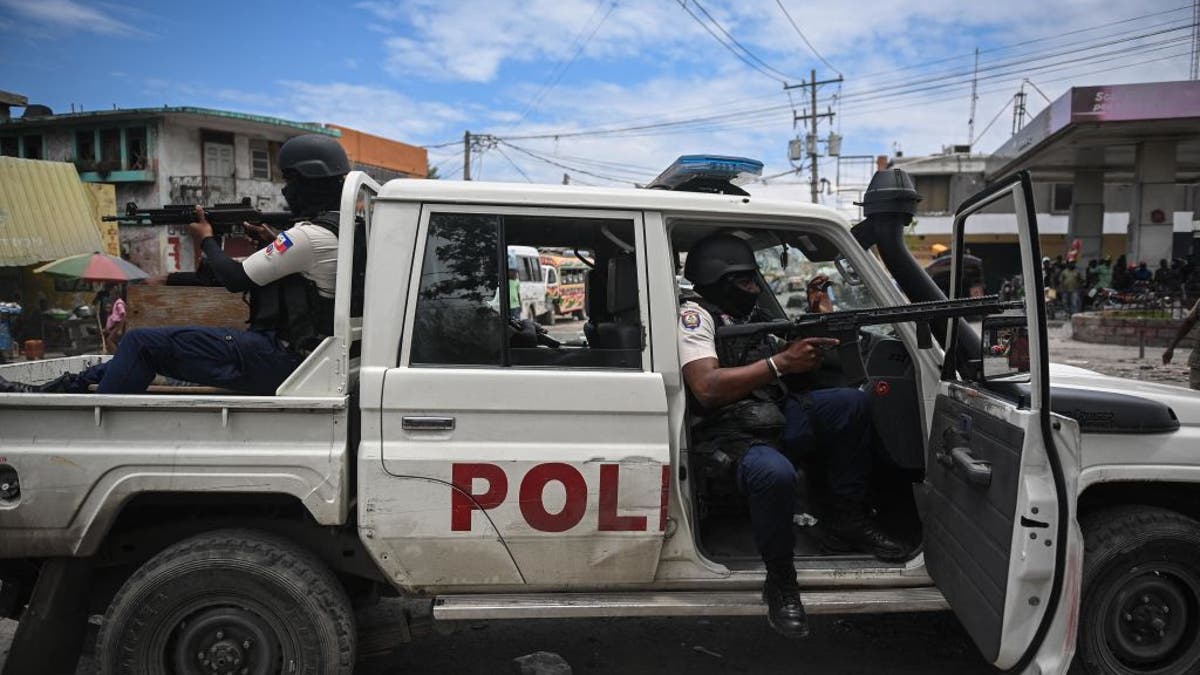
Police officers patrol a neighborhood amid gang-related violence in downtown Port-au-Prince on April 25, 2023. Between April 14 and 19, clashes between rival gangs left nearly 70 people dead, including 18 women and at least two children, according to a United Nations statement released April 24. (RICHARD PIERRIN/AFP via Getty Images)
Germine demanded $1 million for each hostage to assert his criminal enterprise's dominance in Haiti, which has been overrun by warring gangs since then Haitian president Jovenel Moise was assassinated in July 2021, court records show.
Part of his goal for the armed abductions of the Christian missionaries was to secure his own release from a Haitian prison, according to court documents.
HAITI ORDERS NIGHTLY CURFEW AFTER ARMED GANGS JAILBREAK THOUSANDS OF 'VIOLENT INMATES'
None of the hostages were injured, and were ultimately either freed or escaped, but the U.S. took swift action. All the suspects were in custody before the end of 2021.
In addition to Christian missionary abductions, the gang executed a sophisticated gun-running and money-laundering scheme that resulted in the purchase of at least 24 weapons that were smuggled from the U.S. to Haiti to arm "400 Mawozo," according to court documents.
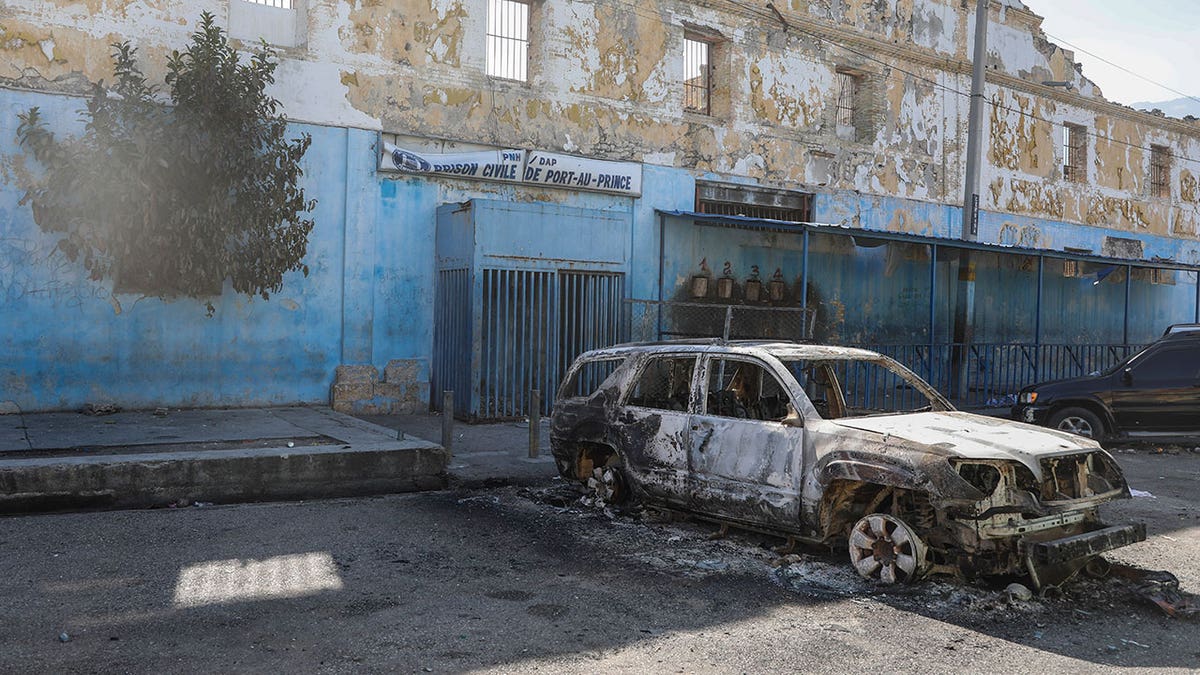
A burned car is seen outside the National Penitentiary in downtown Port-au-Prince, Haiti, Sunday, March 3, 2024. Hundreds of inmates have fled Haiti's main prison after armed gangs stormed the facility overnight. (AP Photo/Odelyn Joseph)
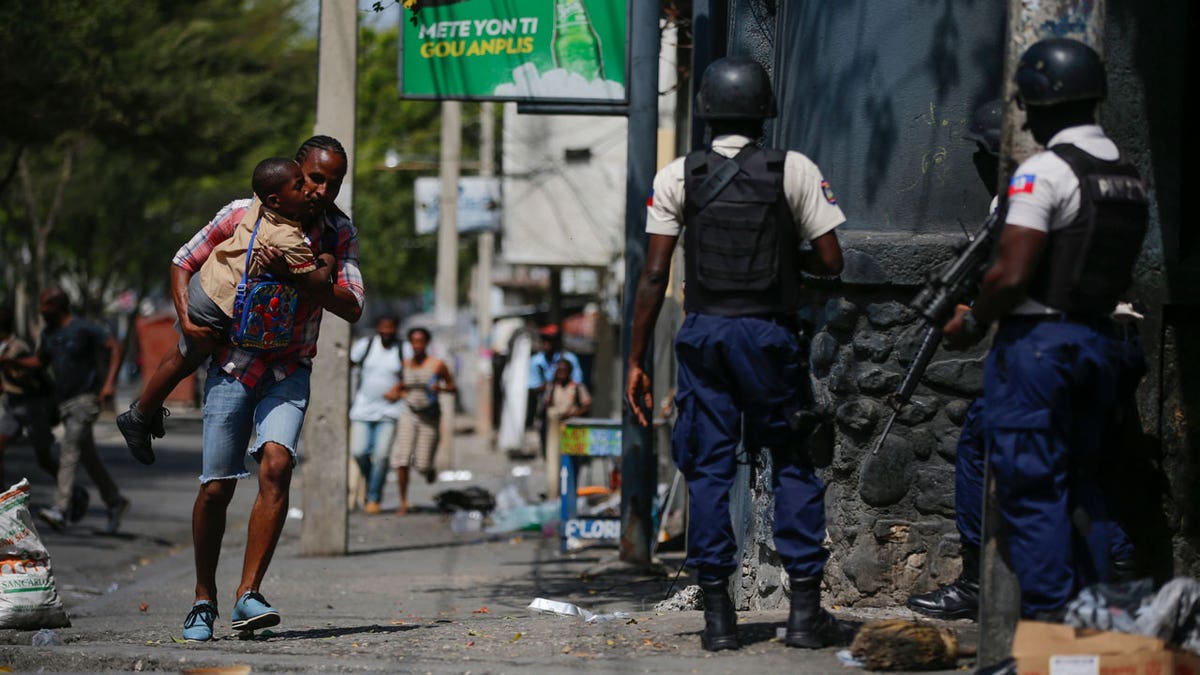
The United Nations has warned that Haitian gang violence appears likely to envelop the nation despite better-funded and more present police forces. (AP Photo/Odelyn Joseph)
The case snaked its way through the judicial process over the next couple of years, and the dominoes quickly fell after two straw buyers – Walder St. Louis and Jocelyn Dor – pleaded guilty last fall.
St. Louis testified against Germine, and Dor was sentenced on Feb. 28 to five years in federal prison.
The so-called "king" and "queen" of 400 Mawozo pleaded guilty in late January, and are scheduled to be sentenced in the spring. They each face life in prison.
ANTI-GANG TASK FORCE AGREEMENT WITH KENYA IN THE WORKS, HAITIAN GOVERNMENT SAYS
U.S. Attorney Matthew M. Graves for the District of Columbia said in a Feb. 1 statement that "violent gangs have ravaged Haiti, and all too often, Americans in Haiti have been targets of their violence."
"These two defendants (Germine and Tunis) not only helped lead a prominent violent gang in Haiti, but they were also intimately involved in arming the gang and laundering ransom proceeds the gang obtained from kidnapping Americans," Graves said after they pleaded guilty.
"Preventing them from illegally shipping any more firearms or laundering the proceeds of kidnappings strikes a critical blow against the gang they once led."
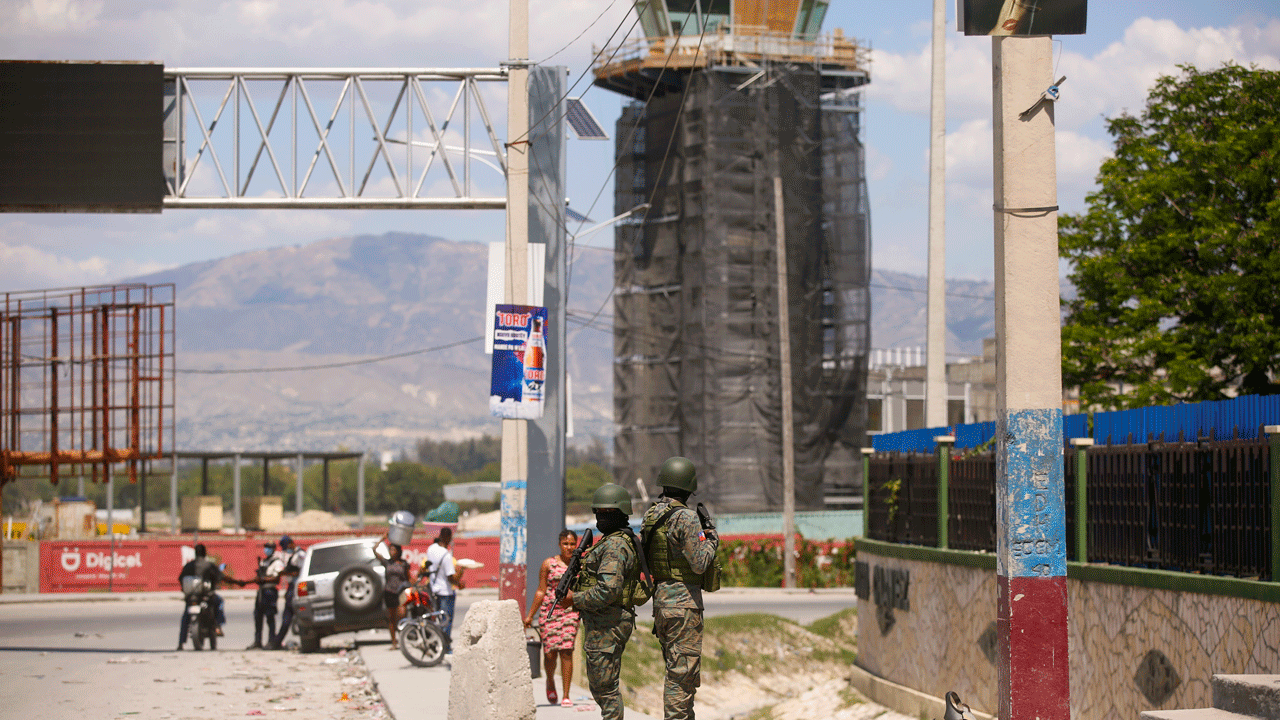
Soldiers guard the entrance of the international airport in Port-au-Prince, Haiti, Monday, March 4, 2024. Authorities ordered a 72-hour state of emergency starting Sunday night following violence in which armed gang members overran the two biggest prisons and freed thousands of inmates over the weekend. (AP Photo/Odelyn Joseph)
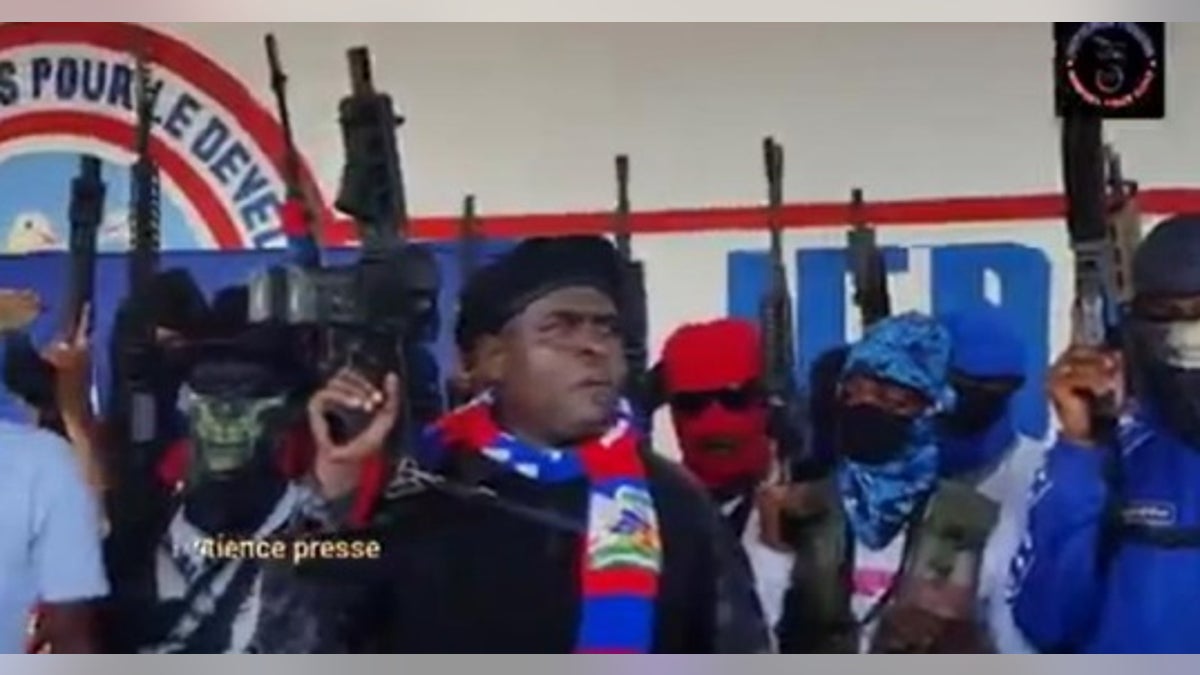
Jimmy "Barbeque" Chérizier pictured in the United Nations report. (United Nations)
Rise of "Barbeque"
Germine and Tunis' U.S. prosecution left a void in the 400 Mawozo leadership just as the gang was asserting its dominance over the country, and its influence dwindled as fast as its membership.
In mid-2022, hundreds of members were killed in several consecutive wars with rival gangs and police shootouts, according to a September 2023 U.N. report, which estimated the gang shrunk from about 500 members to about 80.
HAITIAN LEADER HEADS TO KENYA IN HOPES OF REVIVING ANTI-GANG POLICE FORCE PLANS
As its presence fizzled to the afterthought it is now, Chérizier began to flex his muscles.
Over a five-day span in November 2018, he allegedly led a group of seven gangs, while he was still a member of law enforcement, into the La Saline neighborhood of Port-au-Prince, and slaughtered at least 71 people in the country's worst massacre in over 10 years, according to the U.N.
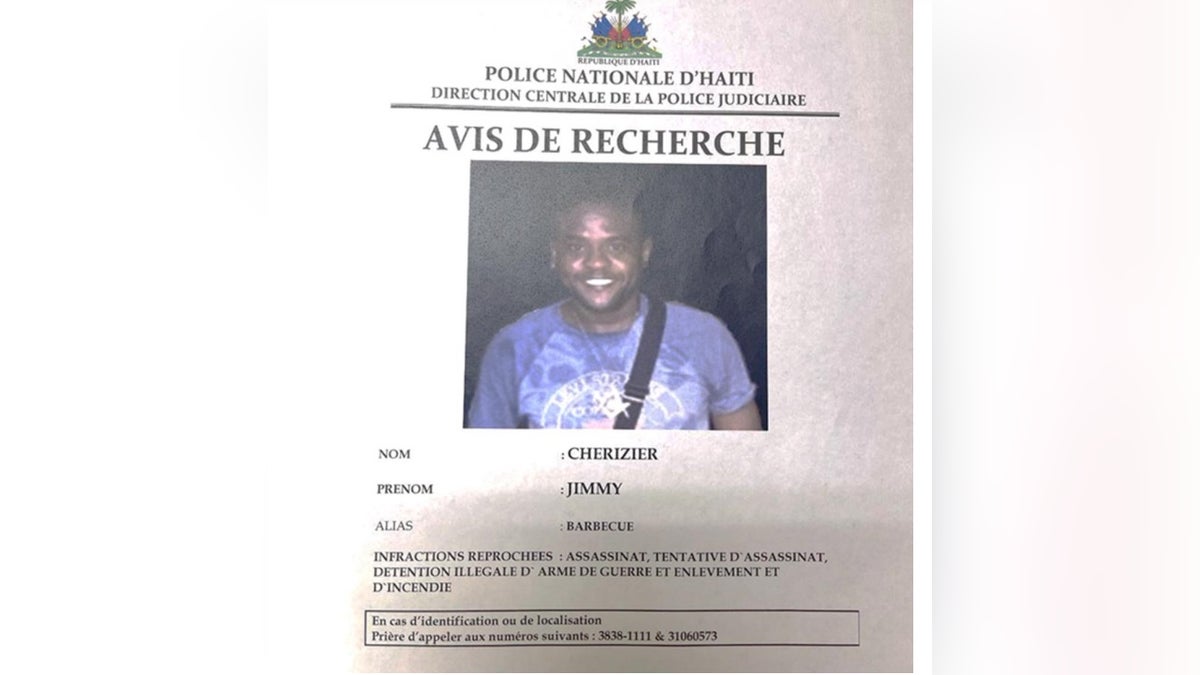
Jimmy "Barbeque" Chérizier was a member of the Haitian police force when he led the largest massacre in the country's history over five days in November 2018, according to the United Nations. (United Nations)
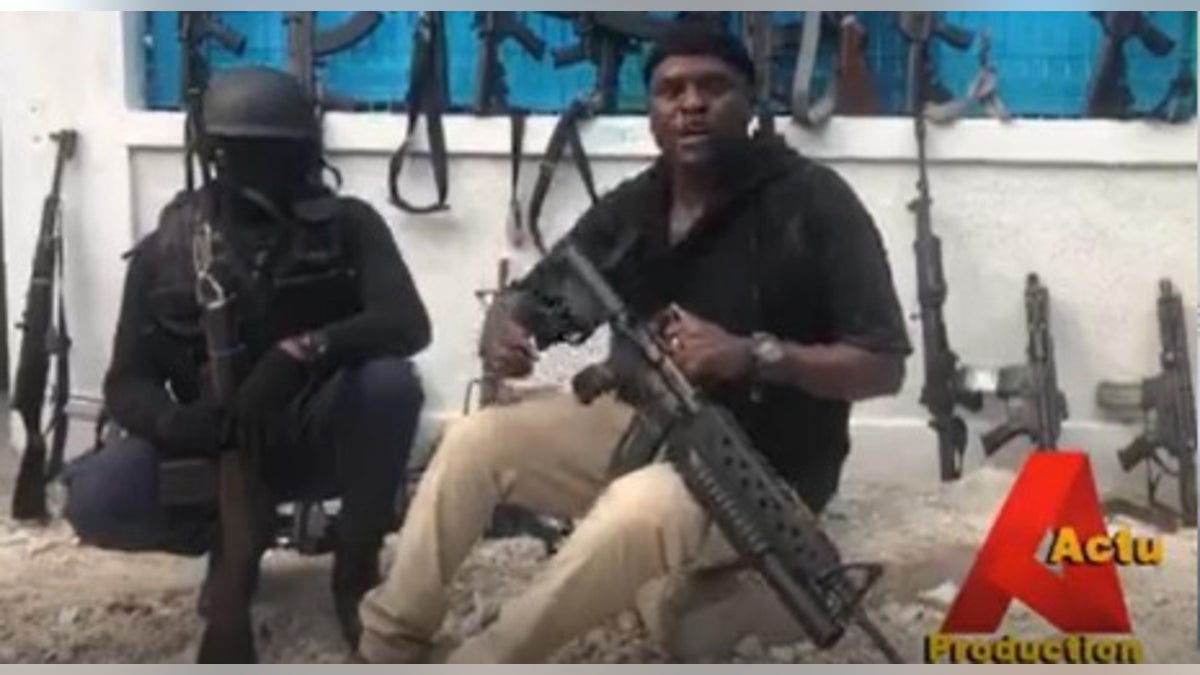
Jimmy "Barbeque" Chérizier claimed responsibility for the jailbreak that set about 4,000 inmates loose in Haiti and the recent violence. (United Nations)
That cost him his job in the police force and made him a wanted man.
But he evaded capture while continuing to wreak havoc in Haiti, which included a November 2019 attack in the Bel-Air neighborhood of the capital, where his small army murdered at least 24 people and burned their homes to the ground, according to the U.N. report.
He portrayed himself as the assassinated president's defender and a unifier.
KENYA AND HAITI SIGN AGREEMENTS TO REVIVE ANTI-GANG POLICE FORCE PLANS
He eventually gained enough control to create the "G9 Family and Allies" coalition, which has become the most powerful criminal enterprise in Haiti.
He claimed responsibility for recent jailbreaks that let about 4,000 inmates loose, and claimed at least nine lives, including four police officers, in an ongoing blitz that started on Thursday and continued over the weekend.
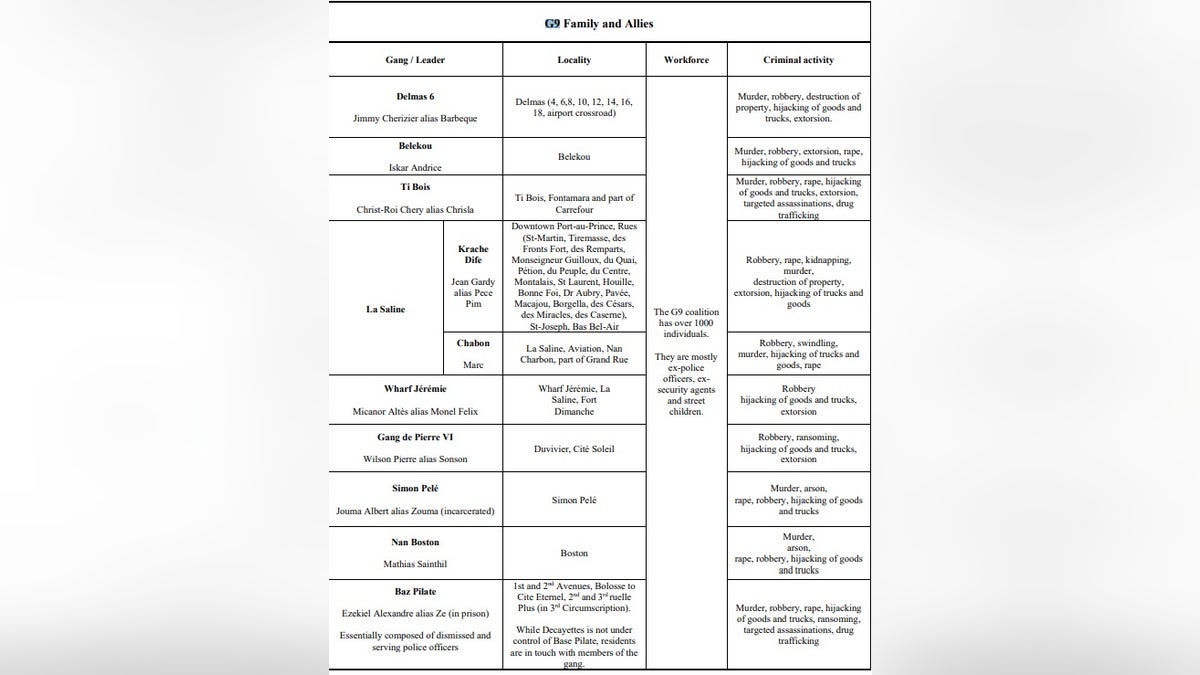
Jimmy "Barbeque" Chérizier created and leads the "G9 Family and Allies," which has become the most powerful criminal enterprise in Haiti. (United Nations)
The coordinated attacks have targeted government buildings, police stations, a national soccer stadium and airports, including the Toussaint Louverture International Airport, the country's main international airport.
He has said his goal is to capture Haiti's police chief and government officials, while overthrowing prime minister Ariel Henry's regime after Henry failed to hold elections last year.
"We have chosen to take our destiny in our own hands. The battle we are waging will not only topple Ariel’s government. It is a battle that will change the whole system," Chérizier said in a statement to local news outlets.
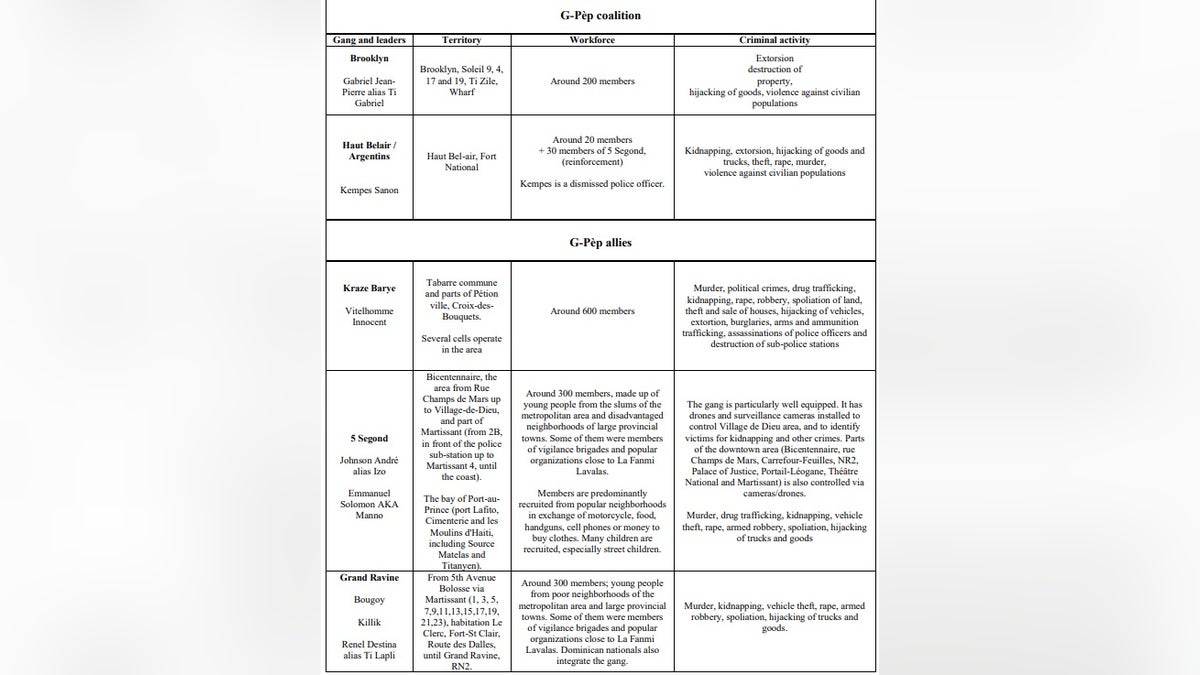
A list of Haitian gangs that form the G-Pep coalition, "Barbeque's" major gang rival. (United Nations)
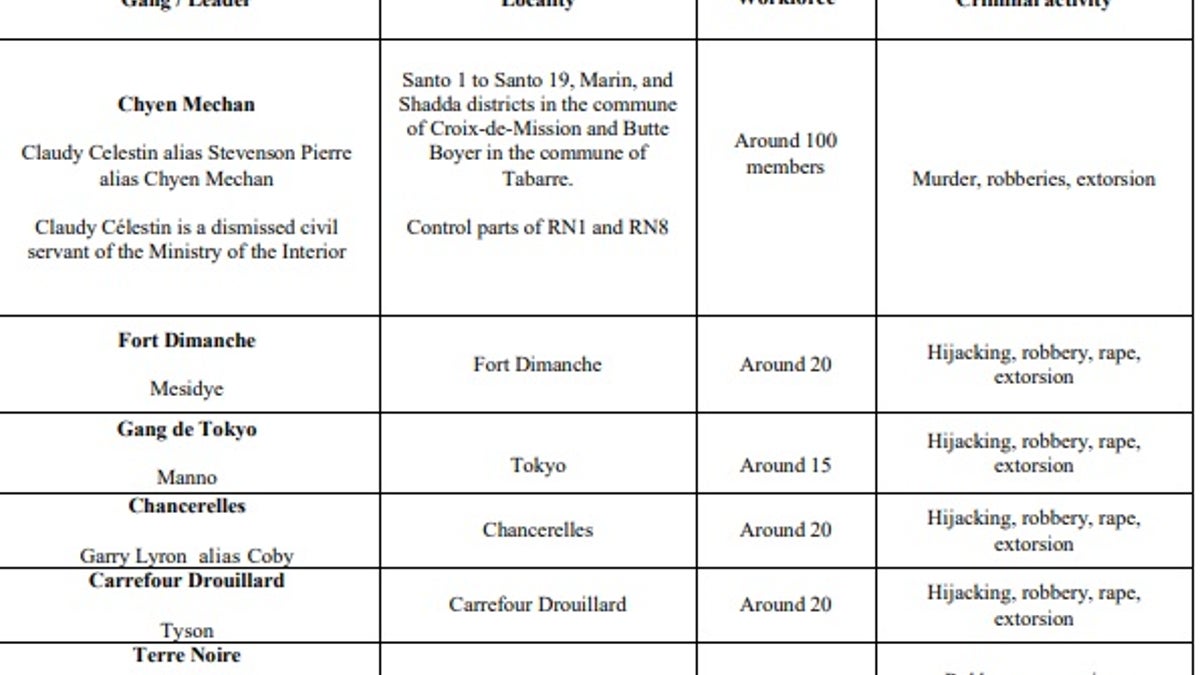
Jimmy "Barbeque" Chérizier created and leads the "G9 Family and Allies," which has become the most powerful criminal enterprise in Haiti. (United Nations)
Witness described how gang members ‘fired at civilians without provocations’: UN report
The U.N. estimated that there are at least 200 criminal groups that control over 80% of Port-au-Prince, but that has essentially consolidated into two warring gang alliances: "Barbeque's" G9 and the G-Pèp, which includes leftover members of the 400 Mawozo.
The two sides have been indiscriminately killing each other – and civilians – for more than two years.
Witnesses told U.N. investigators after consecutive March 2023 attacks, that both sides "began firing at civilians without provocation," and "G9 gang members had begun forcibly evicting people from the area and shooting."
HAITI POLICE PROBE KILLINGS OF PARISHIONERS WHO WERE LED BY PASTOR INTO GANG TERRITORY
Maria Isabel Salvador, special representative of the secretary-general for Haiti and head of the U.N. Integrated Office in Haiti, told the U.N. Security Council at the end of January that there were 8,400 victims of gang violence in 2023, a 122% increase from 2022, and most of the victims were targeted in the capital.
"According to a conservative estimate by the (U.N.) Panel, at least 250,000 Haitian nationals were forcibly displaced internally or have left the country during the reporting period owing to gang violence and economic conditions in Haiti," the report says.
And the country's police force – with fewer than 10,000 officers – is severely undermanned and outgunned, Salvador said. She estimates that the police force needs about 25,000 active officers.
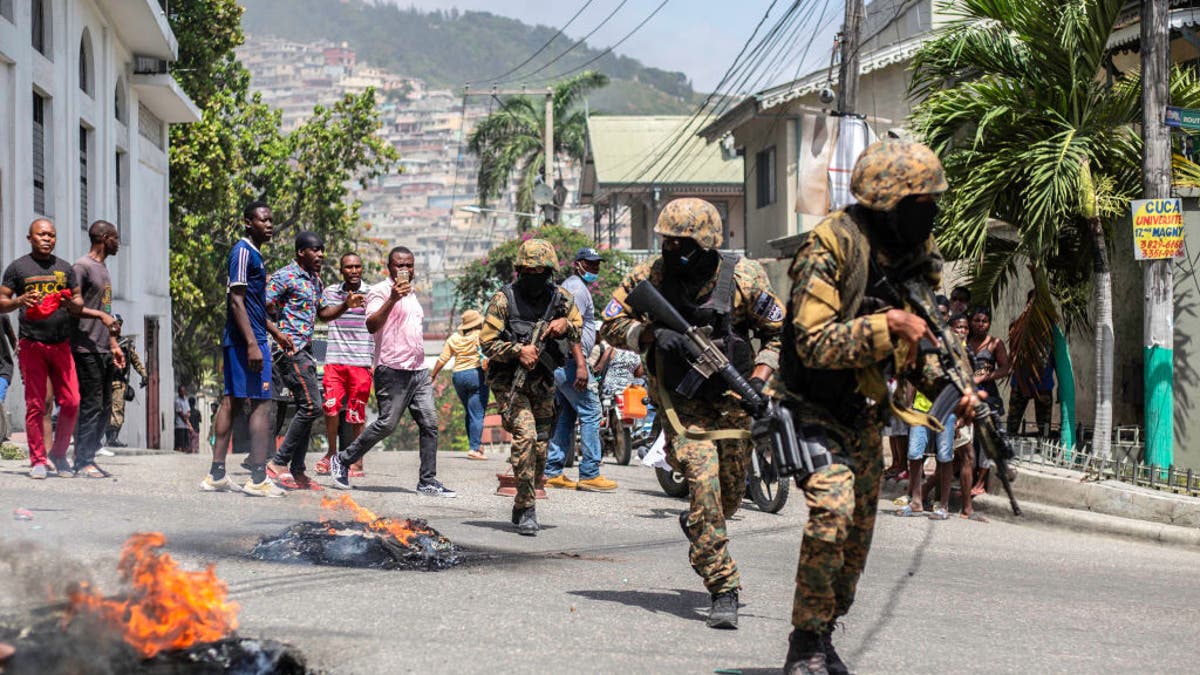
Citizens take part in a protest near the police station of Petion Ville after Haitian president Jovenel Moïse was murdered on July 8, 2021 in Port-au-Prince, Haiti. Moise was killed and his wife injured during an attack at their home in the nation's capital. (Richard Pierrin/Getty Images)
'Gangs have undergone a radical evolution': report
The Global Initiative Against Transnational Organized Crime, an independent civil-society organization, said in a Feb. 12 report that Haiti's gangs "have been profoundly transformed."
"Over the past years, gangs have undergone a radical evolution, going from rather unstructured actors dependent on resources provided by public or private patronage to violent entrepreneurs who have been able to convert their territorial power into governance capabilities," Global Initiative said.
"This shift has been fueled by the gangs’ unprecedented access to firearms and the Haitian state’s inability to halt their expansion, professionalization, and propensity to impose their rule over ever-larger territories, as well as by ongoing collusion by elements of the country’s political and economic elites."
CLICK HERE TO GET THE FOX NEWS APP
Stéphane Dujarric, a UN spokesperson, said on Monday that the last five days of violence highlight the need for intervention.
"We have been talking for months now about how civilians in Haiti and in Port-au-Prince are basically trapped by gang violence," Dujarric said, according to The Guardian. "Schools are closed, hospitals are not functioning, people are suffering on a daily basis."
